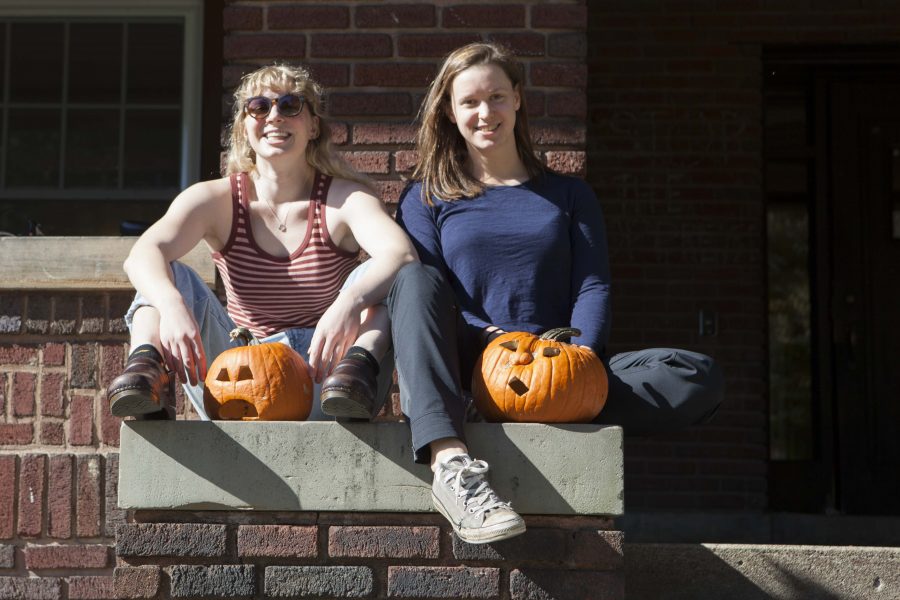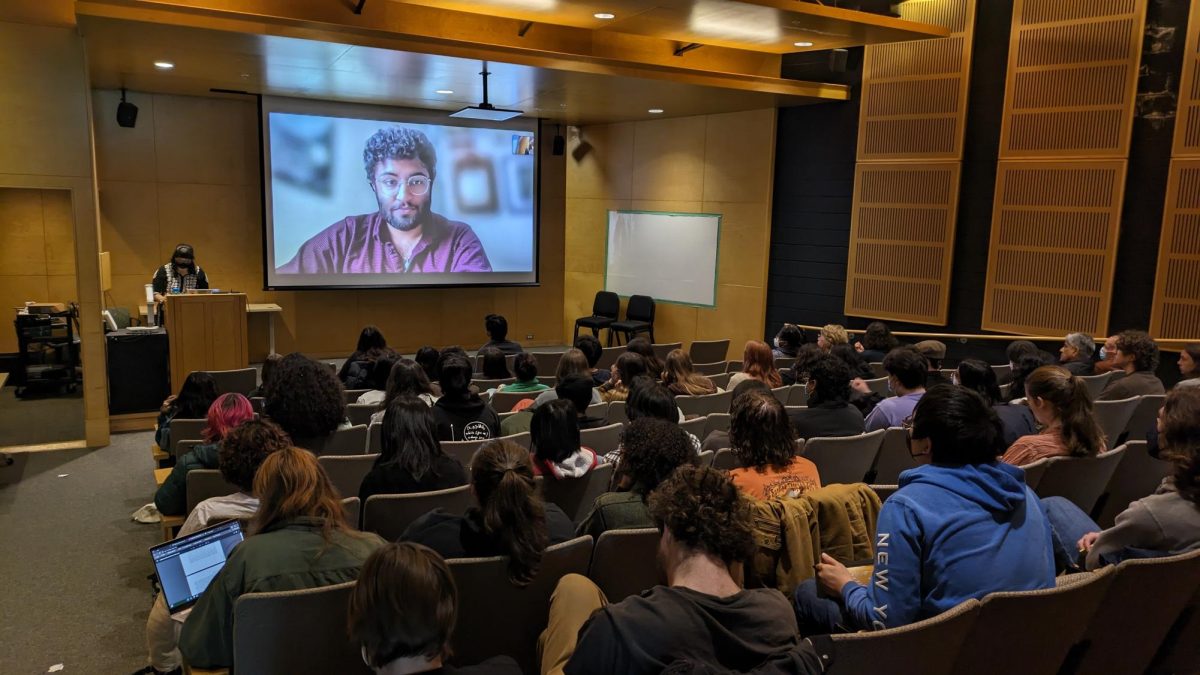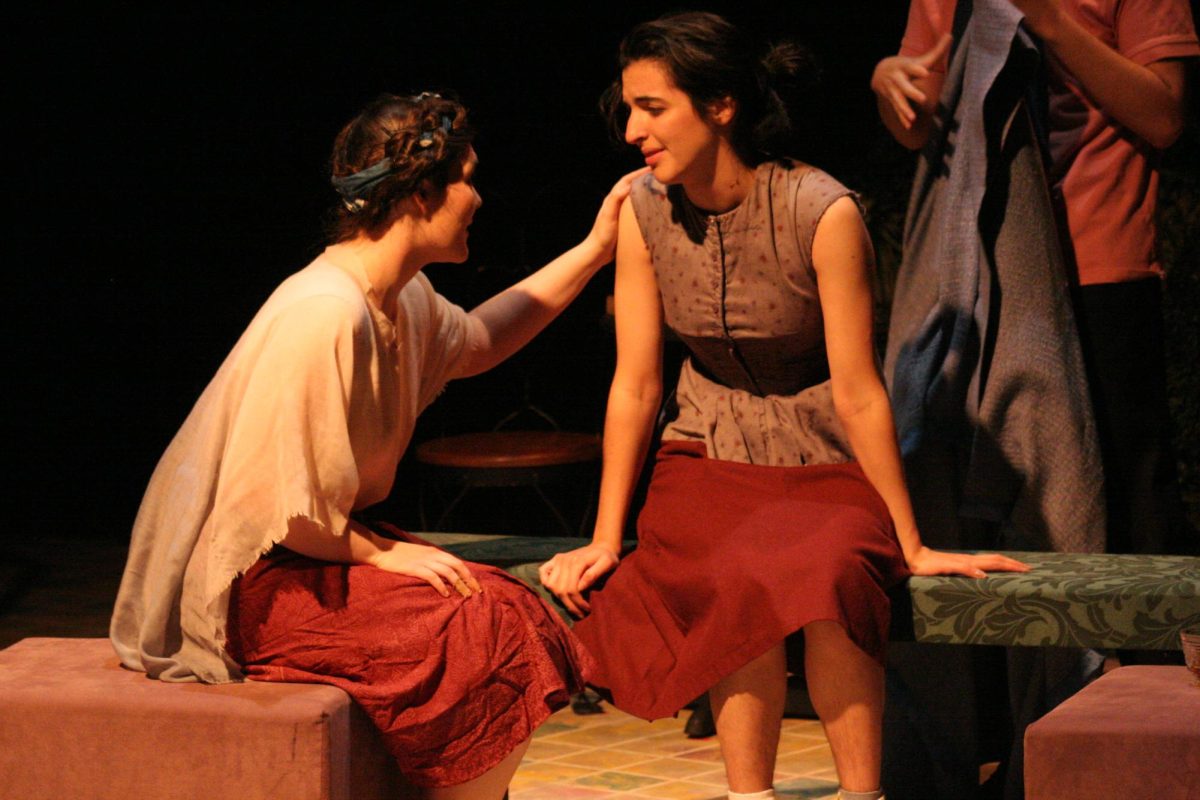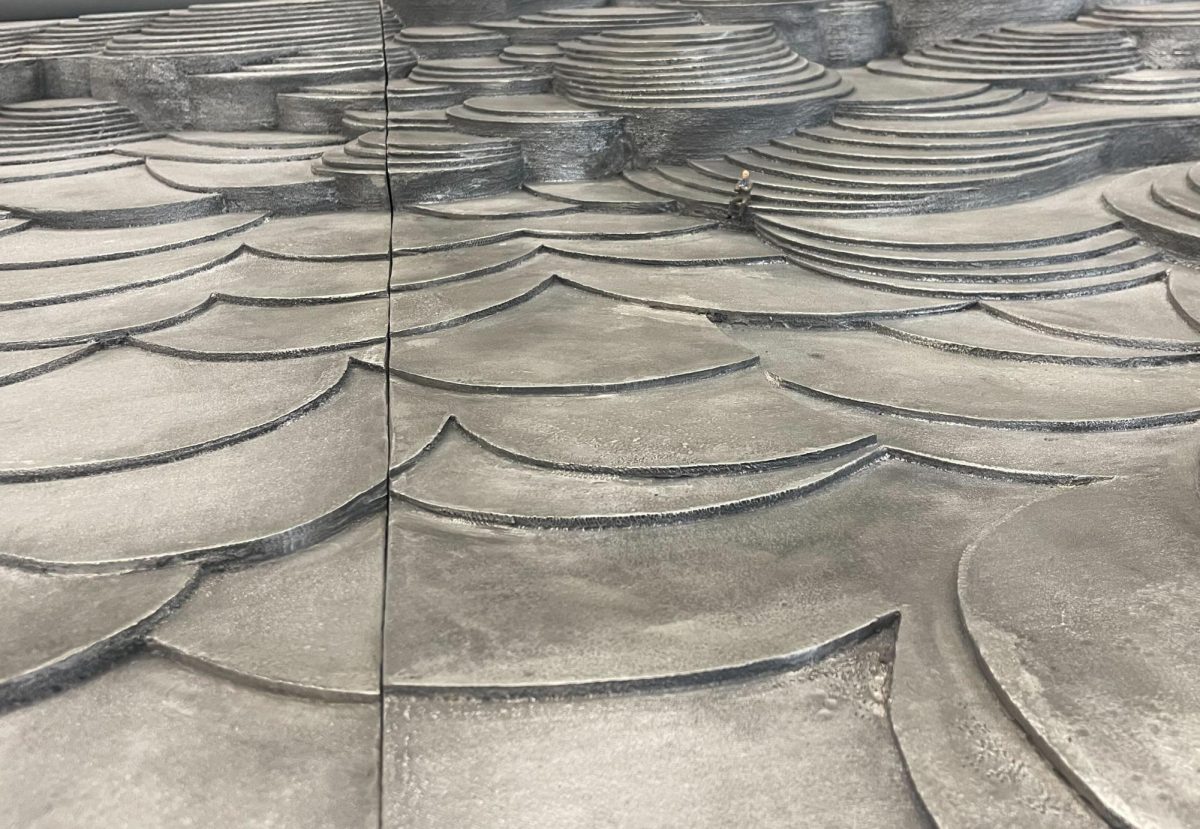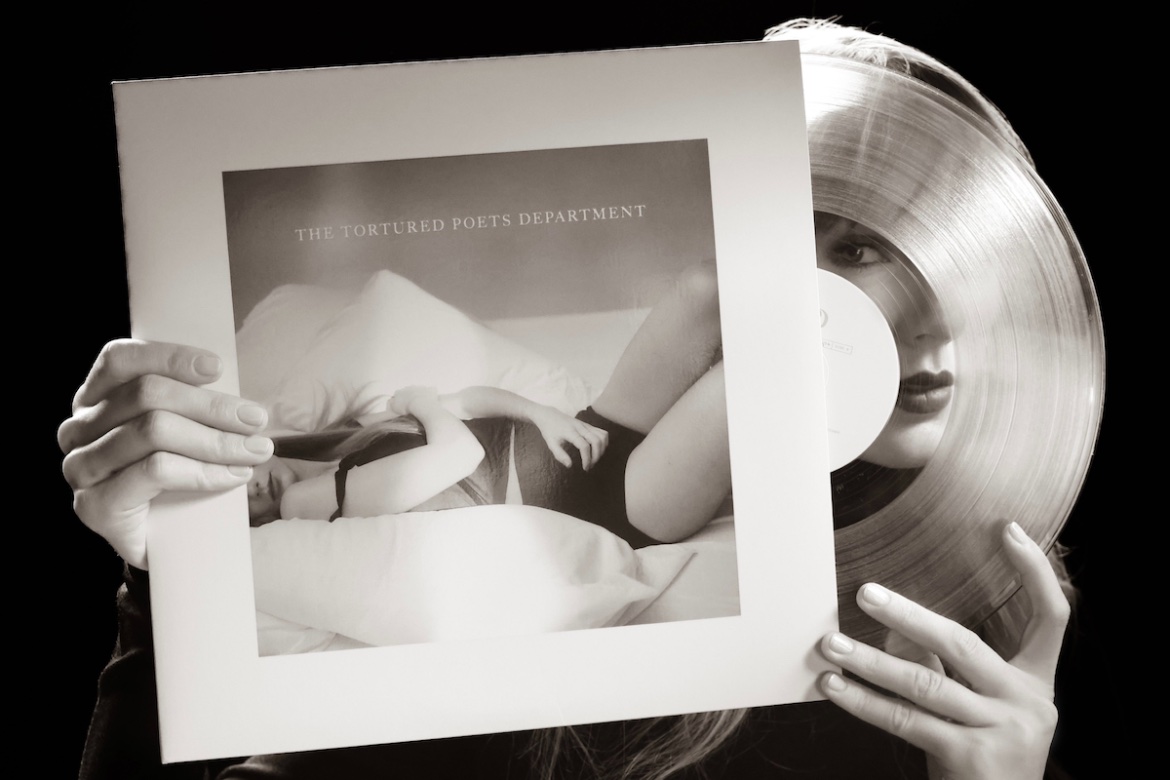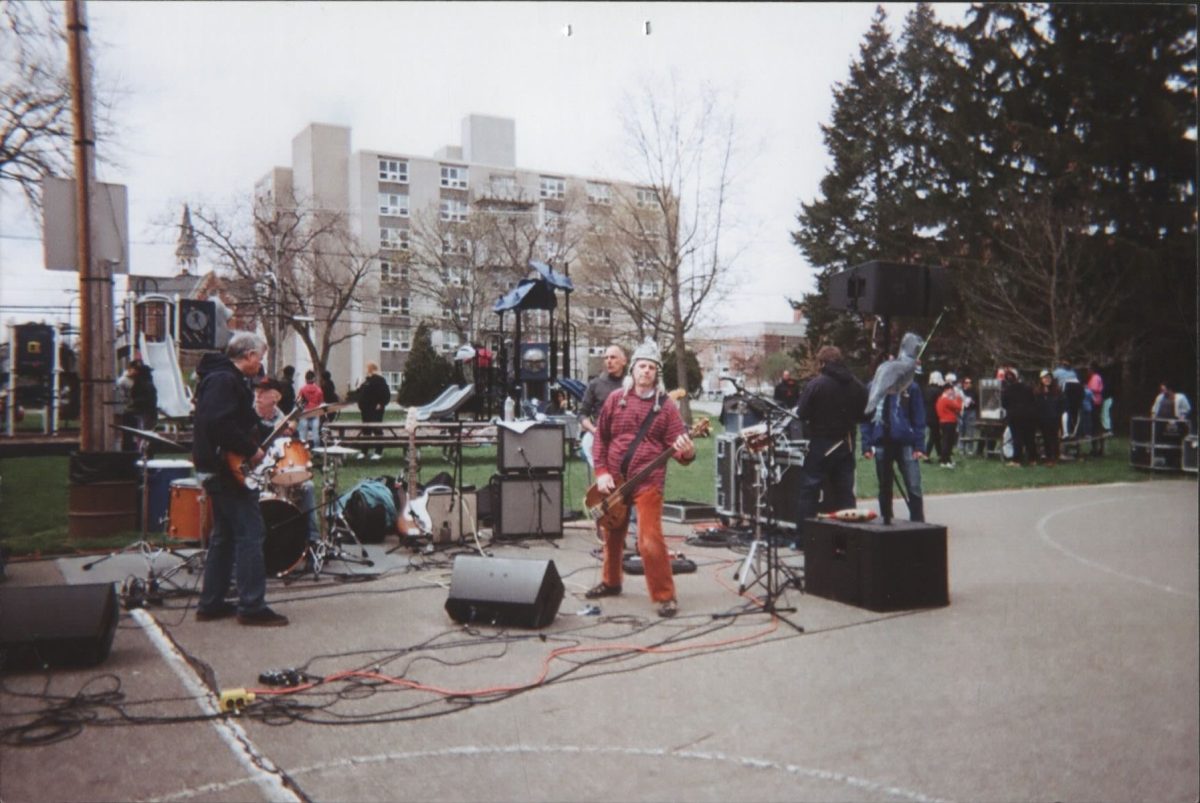In The Locker Room with Swimming & Diving Captains
Seniors Nora Cooper (left) and Kathleen Falk.
October 28, 2016
This week, the Review sat down with women’s swimming and diving team captains Nora Cooper and Kathleen Falk to discuss the importance of veteran leadership, offseason training and favorite memories.
This interview has been edited for length and clarity.
Q: What are your team goals for this season?
Kathleen Falk: We are hoping that we can go undefeated in dual meets this season. That’s something we did our first year. Placing fourth in our conference is another one. One that’s a little more personal is to have 85 percent of our swims be personal best times at conference, which is more about improving ourselves than beating other people.
Nora Cooper: One thing that we emphasize, which I think is really constructive and good moving forward, is just supporting one another, especially in meets. Swimming is such a mental sport, and when you’re swimming in a particularly long race or hard one, it makes all the difference to see your teammates supporting you and cheering at the end of your lane.
Q: What did you learn from last year to help your team succeed this year?
KF: Every year you’re building on the foundation that you come in with, and I think most of the things you learn when you’re swimming are about mentally how to swim your race. So I think that’s a process that continues throughout all four years.
NC: As far as our performance relative to last year, we are swimming on faster intervals. We are having less active recovery, and it is definitely a more intense training program.
Q: Does it add any extra pressure being a captain for the team while still having to perform at a high level?
KF: I think for swimming, the role of captain doesn’t have to do that much with swimming fast but it does have a lot to do with doing the right thing. So there’s always been pressure to be on time and try your hardest in practice. The things you have to do to be a good captain are the same things you have to do to be a good swimmer.
NC: The rules that apply to captains apply to everybody. It’s about leading by example. For swimming at least, the role of the captain is to be a liaison between the coach and the team. Our senior class is really tight-knit. I think everyone in our women’s senior group has stepped up and filled that leadership role. And that, to a certain extent, takes a lot of stress off of both of us as captains.
Q: What kinds of challenges will your team have to overcome in order to be successful?
KF: We have a lot of first years this year and that’s new to us. I think almost more than half of the team is made up of first-years. So making sure that the first years are able to transition to the demands of college is really important to us this year.
NC: It’s always really difficult balancing swimming with academics. It’s so time intensive as a sport. We swim 6:30–8 a.m. every morning and then we either have afternoon practices 2:45–4:45 p.m. or 4:45–6:45 p.m. So, that’s three and a half hours of every single day that we are never getting back. But the structure can be good as well.
Q: How important is it for the senior class to help guide such a large group of underclassmen?
NC: I think the main thing is just providing encouragement. To a certain extent, a lot of the first-years don’t have a lifting background at all. I think that reminding them to trust the process and to buy into [Head Coach] Andy [Brabson’s] training program because it has worked really well for all of us. If they do buy into it they will benefit.
Q: How has your offseason training prepared you for the season?
KF: Swimming is a really intense and long season, so the offseason is always a great opportunity to do other things physically like running, biking or lifting. There is more room to experiment.
NC: We don’t have formal offseason workouts. Andy will write practices for us, and we still will have a time blocked off — 4:45–6:45 p.m. — and a lot of people attend those workouts informally. We also coordinate lifting with partners that we may have lifted with during the season.
Q: What is you favorite memory throughout your swimming career thus far?
KF: Conference [tournaments] are always a lot of fun just because it is so intense physically and mentally, and it’s also really exciting. Last year, I had a good 200-meter backstroke. That was kind of unexpected because I hadn’t been training for it as much, and my coach was really excited with that.
NC: Last year, our 800-meter freestyle relay was all-conference so we placed third, and that was really amazing especially given how competitive our swimming conference is. I also would say my sophomore year, our 800-yard freestyle relay got a nationals cut, which was really amazing. A lot of my most memorable experiences are rooted in performing competitively in such a strong conference.
Interview by Darren Zaslau, Sports editor


